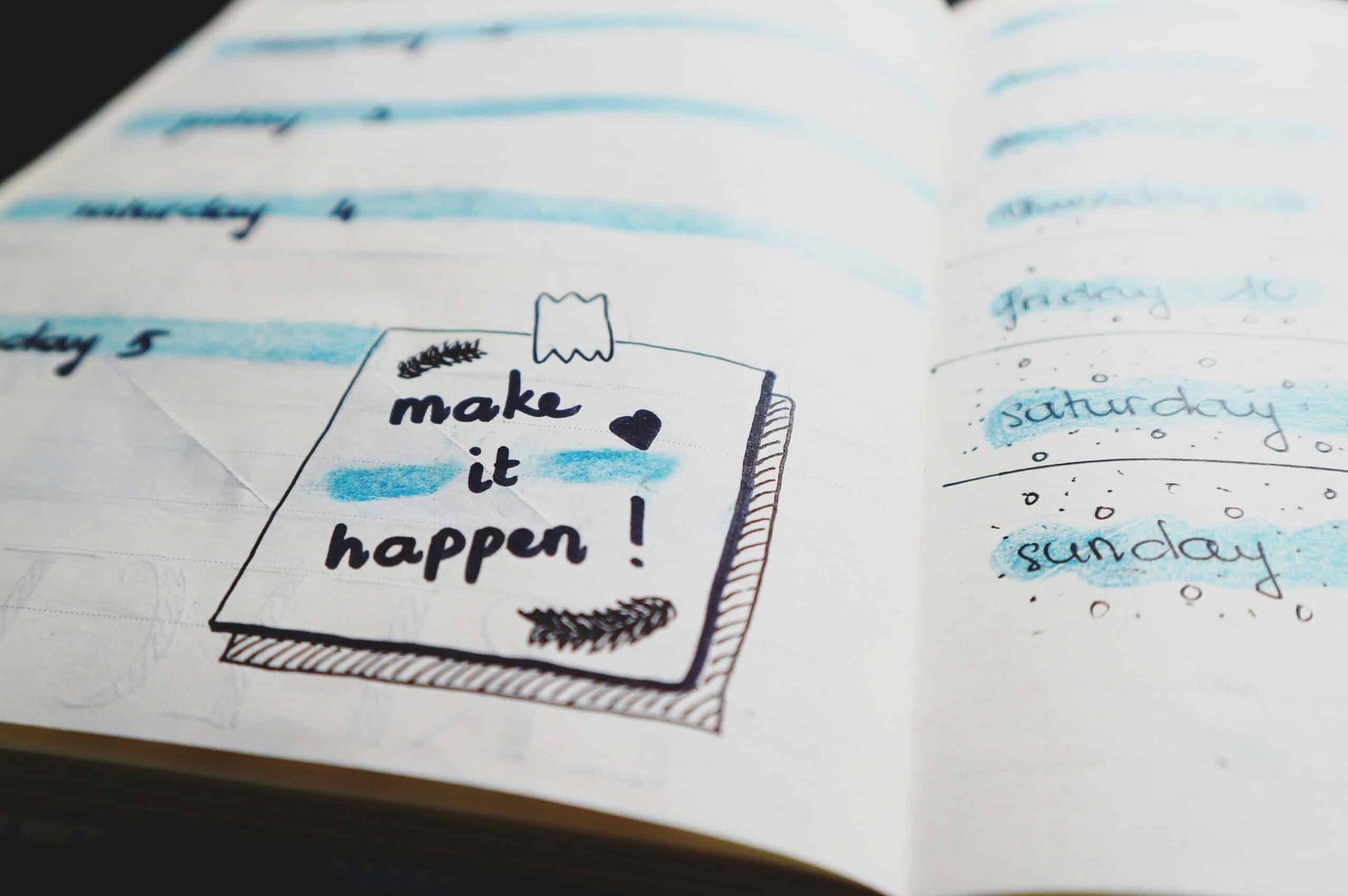Self-Confidence goes hand in hand with Self-Improvement. If you are lack in self-confidence, it typically will hinder your personal growth and decision making. Self-confidence is a fundamental psychological construct that pertains to an individual’s belief in their own abilities, qualities, and judgement. It serves as a foundation for your personal development, how we judge ourselves, and on the ways on how we engage with the people around us. People with high self-confidence tend to tackle challenges easier, more success in pursuing their goals, and higher rate at maintaining a healthy relationships with people around them. When people have low self-confidence can lead to feeling inadequacy, anxiety, and withdrawal from social situations.
Moreover, self-confidence affects your ability to communicate assertively. People with high self-confidence can express your thoughts and feelings more clear than the people that are lack of self-confidence. They are generally perceived as more attractive, approachable, and trustworthy. On the other hand, individuals who lack self-confidence may find it difficult to assert themselves in conversations, resulting in misunderstandings or missed opportunities for connection.
Despite its significance, many people encounter challenges in building self-confidence. It can be many reasons why some individuals are lack of confidence. It maybe due on their past experiences, on how they were upbringing, society expectations, and negative self-perception. All these factors can hinder one’s ability to feel self-assured. In order to improve self-confidence, it is essential to identify and confront these challenges. It’s important to develop an effective habits that can help boost self-esteem. Understanding how self-confidence can affect your self-development is the first step in this journey. In this blog post, we will talk about different things you can incorporate into your daily routine to improve your personal growth and self-acceptance.
Disclosure: This post may contain affiliate links and I may receive a small commission if you purchase through them. There is no additional charge to you. Please refer to our disclaimer and disclosure for further information.
Here are 10 habits that can help improve your self-confidence and create lasting change in how you see yourself:
1. Practice Positive Self-Talk
One of the most powerful habits to improve self-confidence is mastering the art of positive self-talk. Building your confidence through positive self-talk is a transformative habit that starts with being mindful of the words you use when talking to yourself. Many of us have a natural tendency to criticize or downplay our abilities, but you can change this by changing your negative and doubtful thoughts into positive inner dialogue.
Each day, make it a point to replace negative thoughts with affirming ones. For example, instead of saying, “I can’t do this,” try saying, “I’m still learning, and that’s okay,” or “I have what it takes to figure this out.” These simple shifts in language gradually rewire your brain to focus on your strengths and capabilities, making you feel more capable and confident.
Consistency is key with positive self-talk. It’s not something that happens overnight, but the more you engage in it, the more natural it becomes. Start your day by affirming your abilities, perhaps with phrases like, “I am strong,” “I am capable,” or “I believe in myself.” Whenever there is a self-doubts creep in your thoughts, pause and challenge those negative thoughts by reminding yourself of past achievements or the effort you’ve put into personal growth. Over time, this daily practice will help reshape how you view yourself, reinforcing a sense of confidence that becomes part of your everyday mindset.
2. Set and Achieve Small Goals

Confidence grows when you prove to yourself that you can set a goal and follow through. It’s a powerful way to boost your self-confidence because it gives you a sense of accomplishment and progress. The Trick is to start small. Set realistic and attainable goals that you can check off regularly. If you have large goals, try to break it down into manageable tasks, you can create an attainable roadmap for success. For example, if you’re working on improving your fitness, starting with something as simple as walking for 10 minutes each day or doing a short workout can help build momentum. These smaller goals are easier to accomplish, and each time you complete one, you reinforce the belief that you’re capable of following through on your intentions.
The key to this habit is to ensure the goals are realistic and measurable. When you see that you’re making progress, even in small increments, it creates a positive feedback loop. Your brain starts associating goal-setting with success, which fuels your motivation and confidence to tackle larger challenges over time. By regularly setting and achieving these small goals, you train yourself to see challenges as achievable. Overtime, you begin to approach bigger tasks with the same level of confidence and clarity. Each small win acts as a building block for greater assurance and it will make you feel more in control of your abilities and self.
3. Surround Yourself with Positivity
Surrounding yourself with positive people is crucial for building self-confidence because the energy and attitudes of those around you have a direct impact on how you feel about yourself. When you’re in the company of supportive, uplifting individuals, you naturally feel encouraged and valued. These people celebrate your successes, help you see your strengths, and remind you of your worth when self-doubt creeps in. In contrast, being around negative or critical people can drain your energy and make you second-guess yourself, which can seriously hinder your confidence.
Positive relationships act like a mirror, reflecting back the best version of yourself. When you’re surrounded by people who believe in you, their confidence in your abilities can help you see potential in yourself that you may not have noticed. This kind of supportive environment fosters growth and allows you to take risks and step out of your comfort zone because you know you have a strong network cheering you on. Over time, the belief others have in you starts to solidify your own self-belief, helping you build lasting confidence.
Make it a habit to nurture relationships with people who inspire, encourage, and believe in you. It’s also important to distance yourself from toxic or negative influences that only drain your energy and self-esteem.
4. Take Care of Your Body

Confidence is not all about mental state, it’s also closely tied on how you feel about yourself physically. When you take care of your body, you naturally fee more capable, resilient, and strong. Your body is essential for building self-confidence because how you feel physically often reflects in your mental and emotional state.
When you prioritize your health—through exercise, good nutrition, and adequate sleep—you’re not only boosting your physical well-being, but you’re also creating a foundation for mental clarity, energy, and resilience. Regular exercise, for instance, releases endorphins that improve mood and reduce stress, making you feel more capable and in control. When your body feels strong and healthy, it’s easier to maintain a positive mindset and tackle challenges with a sense of empowerment.
Moreover, taking care of your body signals to yourself that you are worth the effort. Engaging in self-care routines, whether it’s through physical activity, grooming, or mindful eating, reinforces the idea that you deserve to feel good and look your best. This, in turn, enhances your self-image and boosts confidence. When you feel comfortable in your own skin and proud of how you treat your body, it becomes easier to project that confidence in social settings, at work, or in personal endeavors. Essentially, a healthy body fuels a healthy mind, and the two work together to create a stronger, more self-assured you.
5. Learn to Say No

No seems to be a easy word to say out loud. You always here kids say “no” to you. However, being able to say “NO” as an adult is an underrated skill that directly correlates with your self-confidence. Many adults may have a hard time to say “no” to their family, friends, and especially their boss. Many people struggle with over committing because they feel they need to please others or be liked. But over time, this habit can lead to burnout and resentment, making you fell overwhelmed and less in control.
Able to say “no” is an essential part of building your self-confidence, because it empowers you to se boundaries and prioritize your own needs. Many people fall into the trap of overcommitting or agreeing to things they don’t want to do out of fear of disappointing others or being judged. However, constantly saying “yes” to others at the expense of your own time and well-being can lead to feelings of overwhelm, resentment, and low self-worth. When you learn to say “no” respectfully and assertively, you take control of your life and protect your energy, which reinforces a sense of self-respect and confidence.
Saying “no” also demonstrates that you value your time and recognize your limits. It’s an act of self-care that shows you’re not willing to sacrifice your well-being for the sake of pleasing others. Each time you set a boundary, you affirm to yourself that your needs and priorities are important. This not only boosts your confidence but also teaches others to respect you and your decisions. Over time, the habit of confidently saying “no” when necessary becomes a powerful tool for maintaining balance in your life and ensuring that you’re investing your time and energy into what truly matters to you.
Learning to say no in a respectful way gives you the power to set boundaries. It allows you to prioritize your own needs and create space for things that truly matter to you. Every time you assert your boundaries, you reinforce the belief that you are worthy of respect.
6. Dress for Success—Whatever That Means to You
Dressing for success is a powerful way to build self-confidence because the way you present yourself directly influences how you feel about yourself and how others perceive you. When you put effort into your appearance, whether through well-fitted clothing, neat grooming, or personal style choices, you project a sense of pride and capability. This sends a positive message to your brain, signaling that you are ready to tackle the day and any challenges that come your way. It’s not about wearing expensive or trendy outfits; it’s about choosing attire that makes you feel comfortable, confident, and authentic in your own skin.
How you dress also impacts how others interact with you, which in turn affects your confidence. People often respond more positively to those who appear polished and put together, whether in professional or social settings. This favorable feedback boosts your self-assurance, reinforcing the idea that you’re capable and worthy of respect. When you receive compliments or notice that you’re being taken more seriously, it can enhance your belief in your own abilities, creating a cycle of growing confidence.
Additionally, dressing for success helps you align your external appearance with your internal goals. When you dress like someone who is confident and ready to succeed, you begin to embody those qualities. It’s a subtle, yet effective way to shift your mindset and step into the version of yourself that you aspire to be. By consciously dressing in a way that makes you feel good, you empower yourself to approach situations with a sense of readiness, self-assurance, and purpose, which naturally builds lasting confidence over time.
7. Embrace Failure as a Learning Opportunity
Embracing failure as a learning opportunity is crucial for building self-confidence because it shifts your mindset from fearing mistakes to viewing them as stepping stones for growth. Many people associate failure with inadequacy, which can lead to feelings of self-doubt and discourage them from taking risks. However, when you reframe failure as an inevitable part of the learning process, it becomes less about the setback and more about the lessons you gain. Every time you fail, you uncover new information about yourself, your abilities, and how to improve in the future. This mindset helps you understand that failure is not a reflection of your worth but an opportunity to grow, which ultimately builds resilience and confidence.
By embracing failure, you also develop the courage to take on challenges that might seem daunting. When you know that failure is not the end, but rather part of the journey, you’re more likely to step out of your comfort zone and try new things. Each time you fail and recover, you prove to yourself that you can handle the challenge. This process strengthens your confidence because you learn to trust your ability to adapt, learn, and improve. The more you expose yourself to challenges and setbacks, the more comfortable you will become with uncertainty, which is a key component to build your self-confidence.
Failure also teaches you that success is rarely achieved on the first attempt. Most successful people have experienced multiple failures before reaching their goals, and understanding this helps you put your own setbacks into perspective. Rather than seeing a failure as a personal flaw, you start to see it as part of the journey toward success. This perspective allows you to maintain confidence even when things don’t go according to plan because you know that failure is temporary and can be overcome with persistence and learning.
Ultimately, embracing failure empowers you to be kinder to yourself. When you stop fearing failure, you allow yourself to be human and imperfect, which reduces the pressure to perform perfectly all the time. This self-compassion nurtures a deeper sense of confidence because you start to appreciate your efforts and progress, regardless of the outcome. In the long run, the ability to learn from failure and keep moving forward helps you develop a strong, resilient confidence that can weather any obstacle.
8. Step Out of Your Comfort Zone
Stepping out of your comfort zone is essential for building self-confidence because it challenges you to grow beyond your current limits. When you stay within your comfort zone, you may feel safe, but you also limit your ability to develop new skills and experiences. Taking on challenges that make you uncomfortable, whether it’s speaking in public, trying a new hobby, or taking on a difficult project, pushes you to confront your fears and uncertainty. Each time you succeed in doing something outside of your comfort zone, you build trust in your abilities, proving to yourself that you’re capable of more than you initially thought.
Additionally, venturing into new territory allows you to experience personal growth that boosts your confidence. Every time you overcome discomfort or navigate a challenge, you gain a sense of accomplishment that reinforces your belief in yourself. Even when things don’t go perfectly, stepping out of your comfort zone teaches you resilience and adaptability. These experiences help you develop a mindset where challenges are seen as opportunities for growth, rather than threats, fostering a deeper and more enduring sense of self-confidence.
Stepping outside your comfort zone also opens doors to new possibilities and connections that further contribute to building your confidence. You may discover talents or interests you didn’t know you had, meet people who inspire and support you, or achieve goals you once thought were out of reach. These experiences not only broaden your perspective but also remind you of your potential, helping you feel more confident in your ability to handle whatever comes your way.
9. Practice Gratitude
Practicing gratitude is a powerful tool for improving self-confidence because it shifts your focus from what you lack to what you already have. When you regularly take time to appreciate your achievements, strengths, and the positive aspects of your life, you begin to see yourself in a more positive light. Gratitude helps you recognize your progress and accomplishments, no matter how small, which reinforces a sense of self-worth. This shift in perspective cultivates a feeling of contentment and confidence, reminding you that you are capable and have much to offer.
Additionally, gratitude reduces the tendency to compare yourself to others, which is often a source of self-doubt. By focusing on what you’re thankful for in your own life, you become less concerned with external validation and more confident in your own journey. This inward focus helps you stay grounded, making it easier to appreciate your unique qualities and experiences. Over time, practicing gratitude can foster a sense of inner peace and self-assurance, allowing you to approach challenges and setbacks with a more resilient and confident mindset.
Incorporating gratitude into your daily routine also helps you develop a more optimistic outlook, which directly boosts self-confidence. When you make a habit of acknowledging the good things in your life, you train your mind to focus on the positive rather than dwelling on the negative. This positivity radiates outward, affecting not only how you feel about yourself but also how you interact with the world. In turn, this helps you approach new opportunities, relationships, and challenges with greater confidence, knowing that you are supported by a foundation of gratitude and self-appreciation.
10. Invest in Personal Growth
Finally, it’s important to make a habit to continually invest in your own growth, whether it’s learning a new skills, expanding your knowledge, or improving your mindset. Investing in personal growth is crucial for building self-confidence because it equips you with the skills and knowledge needed to navigate challenges in your life effectively. When you commit to learning and developing yourself, whether through reading, taking courses, or engaging in new experiences, you are expanding your capabilities and reinforce your belief in your own potential. Each step you take toward self-improvement serves as a reminder that you are actively working toward becoming a better version of yourself, which enhances your self-esteem and encourages you to pursue even greater goals.
Moreover, personal growth fosters resilience, a key component of self-confidence. As you face and overcome obstacles during your journey of growth, you learn to trust in your ability to handle difficulty. This experience not only strengthens your problem-solving skills but also builds a sense of accomplishment that fuels your confidence. You start to realize that setbacks are merely stepping stones for learning, allowing you to approach future challenges with a more positive mindset and a belief in your capacity to succeed.
Additionally, investing in personal growth often leads to a greater understanding of your values, passions, and strengths. When you know yourself better, it becomes easier to make decisions that align with your true self, boosting your confidence in both personal and professional spheres. This self-awareness enables you to set and pursue goals that resonate with you, leading to a more fulfilling life and a stronger sense of self. Confidence isn’t static, it grows and evolves as you do. By dedicating time and energy to personal development, you’ll constantly be adding tools to your confidence toolkit.
Final Thoughts: Confidence Is a Habit, Not a Destination
Building self-confidence isn’t about reaching some final destination where you feel 100% sure of yourself all the time. It’s about cultivating habits that reinforce your belief in yourself, bit by bit, day by day. With the right habits in place, you can transform the way you see yourself and how you interact with the world.
Remember that everyone’s confidence journey is different, and there’s no one-size-fits-all approach. The key is to be patient with yourself and commit to the process. Over time, you’ll notice that the little habits you practice add up to a bigger sense of self-worth and belief in your potential. So, go ahead and start incorporating these habits into your life—you’ll be surprised at the transformation that can occur.









